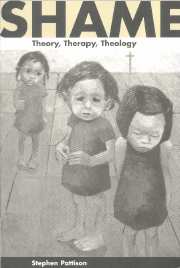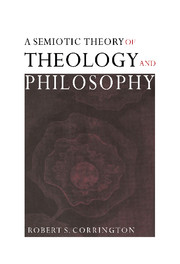Shame
Theory, Therapy, Theology
$62.99 USD
- Author: Stephen Pattison, University of Birmingham
- Date Published: July 2005
- availability: This ISBN is for an eBook version which is distributed on our behalf by a third party.
- format: Adobe eBook Reader
- isbn: 9780511038204
Find out more about Cambridge eBooks
$
62.99 USD
Adobe eBook Reader
Other available formats:
Hardback, Paperback
Looking for an inspection copy?
This title is not currently available on inspection
-
In this book, first published in 2000, Stephen Pattison considers the nature of shame as it is discussed in the diverse discourses of literature, psychology, psychoanalysis, philosophy, history and sociology and concludes that 'shame' is not a single unitary phenomenon, but rather a set of separable but related understandings in different discourses. Situating chronic shame primarily within the metaphorical ecology of defilement, pollution and toxic unwantedness, Pattison goes on to examine the causes and effects of shame. He then considers the way in which Christianity has responded to and used shame. Psychologists, philosophers, theologians and therapists will find this a fascinating source of insight, and it will be of particular use to pastoral workers and those concerned with religion and mental health.
Read more- Rooted in autobiographical experience and easy to read, accessible to counsellors and pastoral workers
- Original, comprehensive, critical, interdisciplinary survey of contemporary theories relating to understanding and responding to shame, especially chronic shame
- First and most comprehensive extended study of relationship between chronic shame and contemporary Christian thought and practice
Reviews & endorsements
'Thoughtful observers of the human condition have largely shifted from an earlier concern with behavior toward rapt concentration on the emotions that underlie or accompany it. The very concept of morality forces attention on shame and guilt as the internal enforcers of any moral code. Professor Pattison, whose career long interest in the doing of religious work has made any of his books worth serious attention, here presents a compelling argument that theology must be practical in order to accomplish its goals. In this stunning text, he heralds a shift from a Christian doctrine based on the shaming attribution of the worshiper as inherently defective toward one grounded in compassion, safety, and love. This is a must read for anyone who cares about the future of religious practise.' Donald L. Nathanson, M.D., Clinical Professor of Psychiatry, The Silvan S. Tomkins Institute, Philadelphia
See more reviews'There are a lot of books which address critically issues of contemporary Christianity and theology. This one, however, arises from the inside, does not hide the author's deep scars, produces detailed and accessible evidence, is extremely well-informed, and demonstrates the urgency of looking at the shame-generating potential and reality of Christianity. Pattison makes the topic accessible to a wider public: the interested, though not necessarily theologically educated, reader will gain a fascinating and clear overview of some of the fundamental questions Christianity is currently struggling with. One of the great merits of his brilliant study is the 'import', as it were, of a wide body of 'outside knowledge' into theological thinking. The book takes us deeper into our realities and helps us to face them.' Werner Ustorf, University of Birmingham
'This is a must read for anyone who cares about the future of religious practise.' Donals L. Nathanson, M. D., Clinical Professor of Psychiatry, The Silvan S. Tomkins Institute, Philadelphia
'The range of questions that this book stimulates is an indication of its quality and importance.' Theology
'Pattison has written an important book whose content has been forged in the fire of his own experience. It should be required reading by pastors and others who have the well-being of the people in their congregations at heart.' Sue and Philip Clements-Jewery
'This book offers a new and deeper insight into the experience of shame … the author has succeeded in producing a book on the subject of shame that is both scientific as well as profoundly moving.' South African Journal of Psychology
Customer reviews
Not yet reviewed
Be the first to review
Review was not posted due to profanity
×Product details
- Date Published: July 2005
- format: Adobe eBook Reader
- isbn: 9780511038204
- contains: 1 b/w illus.
- availability: This ISBN is for an eBook version which is distributed on our behalf by a third party.
Table of Contents
Part I. Approaching Shame:
1. Emotional confusion
2. Problems in approaching shame
Part II. Encountering Shame:
3. The ecology of shame
4. Chronic shame
5. Some effects and implications of chronic shame
6. Aspects of the socio-historical significance of shame
7. Dealing with shame: the task of integration
Part III. Shame and Christianity:
8. Modern Christian responses to shame
9. Shame in Christianity
10. Towards more adequate approaches to shame
Epilogue.
Sorry, this resource is locked
Please register or sign in to request access. If you are having problems accessing these resources please email [email protected]
Register Sign in» Proceed
You are now leaving the Cambridge University Press website. Your eBook purchase and download will be completed by our partner www.ebooks.com. Please see the permission section of the www.ebooks.com catalogue page for details of the print & copy limits on our eBooks.
Continue ×Are you sure you want to delete your account?
This cannot be undone.
Thank you for your feedback which will help us improve our service.
If you requested a response, we will make sure to get back to you shortly.
×









